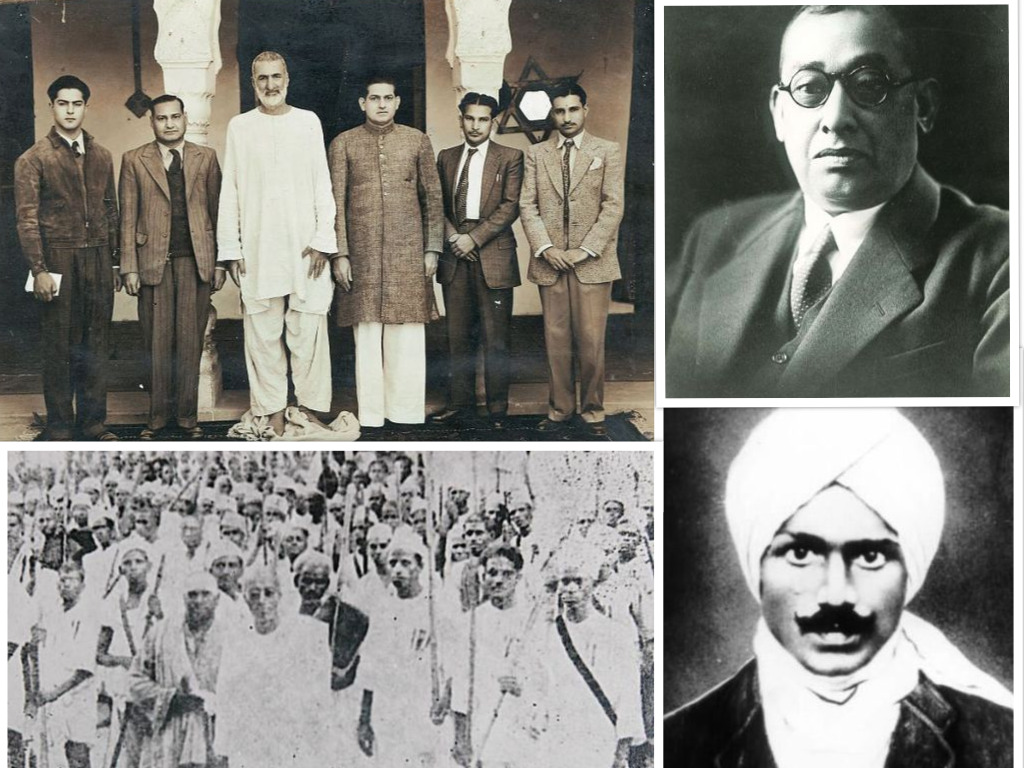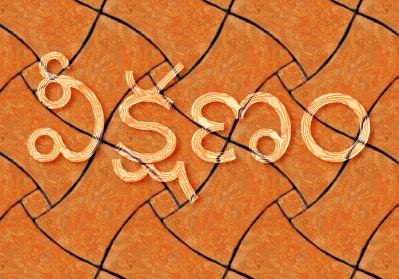Ngũgĩ wa Thiong’o’s “Education for a national culture”

Article By: Halley
ఈ పరిచయం ప్రసిద్ధ ఆఫ్రికా రచయిత గూగి (Ngũgĩ wa Thiong’o) రాసిన Education for a national culture అన్న వ్యాసం గురించి. ఇది “జింబాబ్వే దేశంలో విద్య – గతం, వర్తమానం , భవిష్యత్తు” అన్న పేరు మీద 1981లో జరిగిన సెమినార్ నుంచి సేకరింపబడినది. (1981 seminar on “Education in Zimbabwe – Past, Present and Future”). వ్యాసం లభించు చోటు
గూగి రాసిన రచనలు ఎన్నో చదివాను నేను 2011-12 ప్రాంతం నుంచి ఇప్పటి వరకు. అప్పటి నుంచి ఇప్పటి దాకా చదివిన ప్రతీ సారీ ఎంతో ఆలోచింపజేసేలా అనిపిస్తాయి నాకు. వలసపాలకుల ప్రభావంలో ఏళ్ళ తరబడి తలొగ్గి బతికిన జాతుల సంస్కృతి, చింతన, మేధ ఏ విధంగా పరాయి సంస్కృతికి బానిస అవుతుందో రాసిన అతికొద్ది రచయితలలో గూగి మేలు జాతికి చెందిన వాడు అని నా అభిప్రాయం. మన భాషలో మన దేశంలో ఇటువంటి రచనలు చేసిన విశ్వనాథ వంటి రచయితలు ఉన్నా కూడాను మన మేధావివర్గం అప్పటికే ముద్రలు వేసేసినందున ఆ ముద్రలను దాటి వారి రచనలను విశ్లేషించే ప్రయత్నం సరిగ్గా చేయలేదు తర్వాతి తరం పాఠకులూ మరియు మేధావులు. ఒక వేళ చేసినా కూడానూ “విశ్వనాథది అంతా అగ్ర కుల ఛాందసం” “బూజు పట్టిన సనాతనం” “ఆ కులానికి బలం పోవటం వల్ల ఆంగ్లేయుల పాలనల మీద ఆయనకి అంత అక్కసు” అనో లేదా “నిజానికి ఆంగ్లేయుల పాలన వల్ల ఎంత ప్రగతి ఎంత గొప్ప విద్యా వ్యవస్థ రవాణా వ్యవస్థ ప్రచార సాధనాలు టెక్నాలజీలు” అని అనుకొనే మేధావులు కూడా చాలానే ఉన్నారు మన దగ్గర. అందుకే మనది కాని దేశం మనది కాని సంస్కృతి ఐన ఆఫ్రికా యొక్క వలస పాలన అనుభవం చదవటం నాకు నచ్చుతుంది. గూగి బ్రాహ్మణుడు కాడు, వారి దేశంలో హిందూ మతం లేదు. కుల వ్యవస్థా వర్ణాశ్రమ ధర్మాలు లేవు. అయినా కూడా ఆయన వలస పాలకుల పద్దతుల గురించి దాని తాలూకా ఆఫ్రికా “జీవుని వేదన” గురించి అచ్చంగా విశ్వనాథ రాసినట్టే ఎన్నో విషయాలు రాశారు. కాబట్టి గూగి రచనలను అతని కులం పేరుతో తిట్టేసి పక్కకు నెట్టలేము. వలస పాలన ఒక జాతిని ఎలా చిన్నాభిన్నం చేస్తుందో తెలియాలంటే గూగిని లోతుగా అధ్యయనం చేయాల్సిందే. వలస మేధ విషపు సంకెళ్లు తెంచుకొనే దాకా ఈ దేశానికి నిజమైన స్వరాజ్యం రాదు అని భావించే వారికి గూగి రచనలలోనూ విశ్వనాథ రచనలలోనూ ఎంతో సామ్యం కనపడుతుంది నాకు. కెన్యా గురించి గూగి రాసింది చదివిన నాకు అదే ఖండంలో మరొక దేశమైన జింబాబ్వే ఉద్దేశించి రాసిన ఈ వ్యాసం చాలా నచ్చింది. ఇదే వ్యాసంలో ఫ్రాంట్జ్ ఫేనన్ అల్జీరియా వలస పాలనను గమనించి రాసిన “The Wretched Earth” లోని కొన్ని అంశాలను కూడా ప్రస్తావించారు గూగి. ఈ వ్యాసం చదివి అర్థం చేసుకొనే క్రమంలో ఫేనన్ రాసిన ఆ పుస్తకంలోని కొన్ని భాగాలను కూడా మళ్ళీ తలుచుకొన్నాను. ఇది వరకే ఈ పుస్తకం గురించి ఎరిగి ఉన్నా కూడా శ్రద్ధగా చదివింది లేదు ఇంతకు ముందు
వలస పాలకుల సామ్రాజ్యవాదానికి రెండు పార్శ్యాలు ఉన్నాయి అని అంటూ గూగి ఇలా అంటాడు ఈ వ్యసంలో .. I talk of the colonial stage because imperialism has in fact two stages: colonial and neo-colonial. చాలా మటుకు విషయాలలో మనం ఈ నూతన వలసవాదం నుంచి బయటకు రాలేదు అని అనిపిస్తుంది గూగి రాసిన ఈ వ్యాసం చదివితే మనకు.
ఈ నూతన వలసవాదం అన్న భావజాలం గుప్పిట్లో ఉన్న దేశంలో స్వరాజ్యం అన్నది నామ మాత్రమేనని జాతి ఆర్ధిక వ్యవస్థ అంతా సామ్రాజ్యవాద గుత్తేదార్ల చేతుల్లోనే ఉంటుందని అంటాడు గూగి. “Nothing has, in substance, changed. The only change is that where before the imperialist bourgeoisie used to exploit through settler or feudal representatives in the colonized territory, now it does so through a native bourgeoisie nurtured in the racial womb of colonialism but now eternally grateful for being allowed to raise a flag and to join Europeans in looting and plundering now that the racial barriers to property accumulation have been removed.“
అయితే గూగి పైన మార్క్సు ప్రభావం మెండు కాబట్టి దాన్ని దృష్టిలో పెట్టుకొని అర్థం చేసుకోవాలి ఈ ఆక్రోశాన్ని. అందునా ఇది 1981 అప్పటికి ఇంకా రష్యా విడిపోలేదు. చైనా కూడా ఇప్పటి చైనాకు మళ్లే పూర్తి వినిమయతత్వానికి (కన్స్యూమరిజం) లోబడలేదు. అయితే ఈ విషయం గురించి పక్కన పెడితే నాకు నచ్చిన గూగి భాషా సంస్కృతుల పైన వలసపాలకుల ప్రభావం గురించి రాస్తున్నప్పుడు వస్తాడు. ఇటు వంటిది చదువుతున్నపుడు విశ్వనాథను గుర్తుకు తెస్తాడు.
ఒక జాతి జీవనంలో సంస్కృతి పాత్రను గురించి చెబుతూ “A people’s culture is the carrier of the values evolved by that community in the course of their economic and political life” అని అంటాడు గూగి (విశ్వనాథ అయితే బహుశా ఆధ్యాత్మికాన్ని కూడా కలిపి spiritual life అని తగిలించేవాడేమో). ఈ values అంటే విలువలు అన్నది ఆ జాతి ఆలోచనలని ఎంతగానో ప్రభావితం చేస్తుందనీ మంచిదో చెడేదో నిర్ణయించటానికీ ఏది అందమైనది ఏది కానిది అన్న విచక్షణకూ ఆ జాతి సంస్కృతికి చెందిన ఈ విలువలే పునాది అని అంటాడు గూగి. ఆ జాతి అస్తిత్వానికి చైతన్యానికి ఈ విలువలే మూలమని అంటాడు గూగి. ఆ జాతి యొక్క ప్రాపంచిక దృక్పథానికీ అది తననూ ఇతరులనూ అర్థం చేసుకోటానికి దోహద పడే ప్రధాన సాధనం ఈ సాంస్కృతిక విలువలే అని అంటాడు గూగీ. ఒక జాతి సంస్కృతి అన్నది ఆ జాతి స్వత్వం “selfhood of that community” అని అంటాడు
ఈ చింతన అంతటికి మూలమైన సంస్కృతిని వలస పాలన కోలుకోలేని దెబ్బ తీసింది అని గూగి వాదన. మనది అని మనం చెప్పుకోదగ్గ భాషను సంస్కృతిని తిరిగి పునః సృష్టించుకుంటేనే మనం ఈ నూతన వలస వాదం నుంచి బయట పడ్డట్టు లెక్క అని అంటాడు గూగి
విద్యా వ్యవస్థా సంస్కృతులే ఈ నూతన వలస వాదం పైన జరిగే యుద్ధంలో జాతికి కావలసిన ఆయుధాలని అంటాడు గూగి. ఈ విద్యా సంస్కృతుల స్వరూప స్వభావాల గురించిన చర్చనే ఈ వ్యాసం. ఆర్ధిక సాంఘిక రాజకీయ స్వరాజ్యం ఎంత ముఖ్యమో భాషా సంస్కృతుల విషయంలో కూడా స్వరాజ్యం అంతే ముఖ్యం నిజానికి అంతకంటే ఎక్కువ కూడానూ అన్నట్టు గా ఉంటాయి ఈ విషయంలో గూగి వాదనలు. వలస పాలకులు ఒక జాతిని నియంత్రించాలి అంటే ముందు వారి సంస్కృతిని కబళించి తర్వాత దానిలో బానిస భావాలను పొందుపరచాలని శాయ శక్తులా ప్రయత్నించారని అంటాడు.
“Colonialism finds that economic and political control are incomplete without cultural control. So colonialism imports a culture embodying a slave consciousness”
మరొక చోట గూగి బెర్లిన్ 1884 గురించి ప్రస్తావిస్తూ యుద్ధ రంగంలో బులెట్టు చేసిన భౌతిక హింస కంటే కూడా తరగతి గదిలో జరిగిన మానసిక హింస ప్రభావం ఎక్కువ అంటూ ఇలా రాసాడు. ఈ మానసిక హింస స్వరూపం చూడటానికి సాధువుగా కనిపిస్తుందని తేనె పూసిన కత్తి వంటిదని భావం. ఆ భావాన్నే ఈ వ్యాసం అంతానూ విశదీకరించారు
“Berlin of 1884 was effective through the sword and the bullet. But the night of the bullet was followed by the morning of the chalk and the black board. The physical violence of the battlefield was followed by the psychological violence of the classroom. But where the former was visibly brutal, the later was visibly gentle”
వలస పాలకుల విద్యా వ్యవస్థలో, పాలింపబడ్డ జాతి వారి స్వభాషలను తక్కువ చేసారని అంటూ vernacular అన్న పదం చరిత్రను గురించి కొంత రాశారు ఈ వ్యాసంలో. వెర్నాక్యూలర్ అన్న పదం వెనుక ఇంత చరిత్ర ఉన్నాదని నాకు తెలియదు. ఏదో పదం బాగుందని వాడేయటమే కానీ (చూడు: from verna “home-born slave, native,”).
“The colonial education system denies that the colonized have real human languages.. These are described as ‘vernaculars’ meaning languages of slaves or merely barbaric tongued”
వేరే రాష్ట్రాల గురించి తెలియదు కానీ ఉన్నత వర్గాలకి చెందిన తెలుగు వారు అయితే తూ చ తప్పకుండా పాటించారు ఈ వలస పాలకుల ఆజ్ఞలను. అసలు తెలుగు అంటే ఎంత చిన్న చూపో మనకు. తెలుగును తక్కువ చేస్తే నిన్ను నువ్వు తక్కువ చేసుకున్నట్టే అన్న చిన్న విషయం ఎందుకు స్ఫురించదో మనకు. ఆంగ్లాన్ని పూజిస్తూ ఆంగ్ల సంస్కృతిని పూజిస్తూ మనది అని చెప్పుకోటానికి ఉన్న భాషను సంస్కృతిని కోల్పోయే పరిస్థితికి వస్తాము ఇలా కొన్ని తరాలు కొనసాగితే. భాషకి సంస్కృతికి స్వత్వానికి ఉన్న అవినాభావ సంబంధం గురించి గూగి రాసిన మాటలు ఇవి.
“So the children of the colonized are punished and ridiculed whenever they are caught speaking their mother’s language, and rewarded when they speak the language of the master French, English,Portuguese or Italian as the case may be. This had one aim : to make a child despise his language, hence the values carried by that language and by implication despise himself and the people who spoke a language which now was the cause of his dally humiliation and corporal punishment. By the same token he will admire the language of the conqueror, and hence the values carried by that language and the people, who evolved the language of his daily reward and praise”
దమయంతి స్వయంవరం నవలలో విశ్వనాథ ఇలా అన్నారు
“నల్ల అన్న మాట ఎక్కడి నుంచి వచ్చింది. తెలుగు భాష అయితే దొంగ అంగడి, చాటు అమ్మకం అనే మాటలు వస్తాయి. దొంగచాటు అన్న శబ్దానికి నల్ల అన్న శబ్దం వాడటం మన నాగరకత, మన బ్రదుకు, మన రాజ్యం, ఇంగ్లిషువాడి ఆధీనం అయిపొయింది అనడానికి మొదటి సాక్ష్యం” (చూడు). గూగి వ్యాసంలో కూడా ఇదే విషయం చదివితే భలే ఆశ్చర్యంగా అనిపించింది నాకు.
“Now take the English language for instance: what are the values attached to blackness in that language ? lf a road is very dangerous, they put the picture of a grinning skull and a cross of bones and write down BLACK SPOT. If a child does not fit into the family they say he is BLACKSHEEP of the family. If one engages in business illegally then he is operating in a BLACK MARKET. If one does something offensive to the powers that be then he is put on a BLACK LIST. Black spot; Black sheep; Black market; Black list: these are white lies of a colonial education”
ఇక ఇవే భావాలు మతప్రచారకర్తల ద్వారా ఎలా బలోపరింపబడతాయో చెబుతూ ఇలా అన్నారు గూగి . ఆఫ్రికా దేశాలలో ఉన్న మతాలూ దేవుళ్ళు గురించి పెద్దగా తెలియదు నాకు . నా చిన్నప్పటి పాఠాలలో ఎప్పుడూ అది చీకటి ఖండమే !
“But they are reinforced by Christianity, particularly the version brought by missionaries.To the european coloniser the african has no religion he knows no God. He is superstitious and worships idols and several Gods. There is only God … this god is white; his angels are white. But the devil is black.”
ఇక మతం మార్చుకున్న వారు వారి పేర్లని కూడా వారి వారి సంస్కృతికి దూరంగా మార్చుకున్న తీరును గురించి ఇలా అన్నారు . ఇలా పేర్లు మార్చుకోవటంలో కూడా బానిసత్వపు మూలాలు ఉన్నాయి అని తెలుసుకోకుండా పర సంస్కృతికి బానిస అయ్యారు అప్పటి ఆఫ్రికా దేశ వాసులు అని అభిప్రాయపడ్డారు గూగి
“Christianity even denies that the African has a right to his name. A name is a symbol of identity. The African convert will discard his African name and give himself such good Christian names as Smith, Welensky, Verwoerd, Robert, James, Julius, Ironmonger, Winter bottom, Elizabeth, Mary, Margaret, Summer and Winter. He does not realise that this business of getting new names has roots in slavery where the slave dealer branded the slave with his own mark and gave him his name so that he would forever be known as that master’s property”
యుగాండా దేశంలో Makerere విశ్వవిద్యాలయంలో 1960లో school of fine art విభాగం మొదలుపెట్టినప్పుడు అప్పటి అధ్యాపకులు పాఠాలకు కావలసిన మట్టిని కూడా ఐరోపా ఖండం నుంచి తెప్పించే వారట. తరగతి గదిలో ఉన్నవారంతా ఆఫ్రికన్లు ఐనప్పటికిని వారికి fine art బోధించటానికి ఆఫ్రికా మట్టి కూడా పనికి రాకుండా పోయింది అని వాపోయారు గూగి
ఒక జాతి అస్థిత్వము నాగరికతతో ఆ జాతి యొక్క భాష మరియు సంస్కృతి కళలకూ పెనవేసుకు పోయిన బంధం ఎలాంటిదో వివరిస్తూ ఇలా అన్నారు. ఆ జాతి జీవన విధానం మరియు సంస్కృతీ రెండిటిది విడదీయ రాని బంధం అని అన్నారు .
In the process of their economic and political life, the community develops a way of life often seemingly unique to that society . They evolve language, song, dance, literature; religion, theatre, art, architecture and an education system that transmits all those plus a knowledge of the history and the geography of their territory of habitation from one generation to the next.Thus our economic and political community evolves a cultural life expressed in their languages art,architecture, dance, song, theatre, literature and their educational system. It is a community of culture linked together by a shared way of life.
విద్యకి సంస్కృతికి ఉన్న లంకెను గురించి ఇలా అన్నారు
Thus education is part of culture and culture is part of education. They run,in to each other, and one way of looking at education is a process of integrating a people into the dominant culture of that community
ఫ్రాంట్స్ ఫేనన్ రాసిన The Wretched of the Earth అన్న పుస్తకంలో ఉన్న Pitfalls of National Consciousness అన్న అధ్యాయం కొత్తగా స్వాతంత్య్రము వచ్చిన దేశాలు తప్పకుండా చదవాలని అన్నారు గూగి . తన సొంత దేశాన్ని వలసపాలకుల దోపిడీకి అనుకూలించే వ్యభిచార గృహంగా మార్చే కొత్త మధ్య తరగతి ఒకటి ఈ దేశాల్లో పుట్టుకు వస్తుంది అని అభిప్రాయపడ్డారు ఫేనన్ ఈ పుస్తకంలో . గూగి ప్రస్తావించిన ఫ్రాంట్స్ ఫేనన్ పుస్తకం లోని వాక్యాలు ఇవి .
The national middle class which takes over power at the end of the colonial regime is an under-developed middle class. It has practically no economic power, and in any case it is in no way commensurate with the bourgeoisie of the mother country which it hopes to replace. In its wilful narcissism, the national middle class is easily convinced that it can advantageously replace the middle class of the mother country. But that same independence which literally drives it into a comer will give rise within its ranks to catastrophic reactions, and will oblige it to send out frenzied appeals for help to the former mother country. The university and merchant classes which make up the most enlightened section of the new state are in fact characterized by the smallness of their number and their being concentrated in the capital, and the type of activities in which they are engaged: business, agriculture and the liberal professions. Neither financiers nor industrial magnates are to be found within this national middle class. The national bourgeoisie of under-developed countries is not engaged in production, nor in invention, nor building, nor labour; it is completely canalized into activities of the intermediary type. Its innermost vocation seems to be to keep in the running and to be part of the racket. The psychology of the national bourgeoisie is that of the businessman, not that of a captain of industry; and it is only too true that the greed of the settlers and the system of embargoes set up by colonialism has hardly left them any other choice.
Because it is bereft of ideas, because it lives to itself and cuts itself off from the people, undermined by its hereditary incapacity to think in terms of all the problems of the nation as seen from the point of view of the whole of that nation, the national middle class will have nothing better to do than to take on the role of manager for Western enterprise, and it will in practice set up its country as the brothel of Europe.
సామ్రాజ్యవాదంలో అంతర్భాగమైన ఈ నూతన వలసవాదపు పాలనలో విద్యావ్యవస్థ మరియు సంస్కృతి అన్నవి దోపిడీకి అణచివేతకు సాధనాలుగా మారిపోతాయి అని అన్నాడు గూగి . ఈ నూతన వలస వాద క్షేత్రంలో యూరోపు పేర్లు , యూరోపు భాషలు , యూరోపు నాటకాలు , యూరోపు సాహిత్యమూ , యూరోపు చదువులు ఇలా ఒక జాతి సంస్కృతికి ప్రధానమైన అంగాలన్నిటిలో యూరోపు ఛాయ అన్నది పోదు అని అన్నారు . ఈ నూతన వలస పాలకులు సామ్రాజ్యవాదుల ప్రాపంచిక దృక్పథంలోనే పెరిగారు కాబట్టి తమ దేశపు యువతను కూడా తమకు మల్లే వలస మేధలో పెరిగేటట్టు చేసే చదువుల ఫ్యాక్టరీలలో చేరుస్తారని అన్నారు . మరిన్ని చర్చులు మరిన్ని మత ప్రచార కార్యక్రమాలు ఉదృతమవుతాయని అన్నారు గూగి ఈ నూతన వలస పాలనా యుగంలో . ఈ విధంగా వలస మేథలో పెరిగిన ఈ కొత్త బానిస జాతి తమ పాశ్చాత్య ప్రభువులకి తాము నాగరికులమని తాము సంస్కరింపబడ్డామని నిరూపించుకోడానికి తాపత్రయ పడుతుందని అన్నారు . ఎప్పుడైతే ఈ జాతులు తమను తాము నిరూపించుకోటానికి పర పాలకుల కొలబద్దలకు ప్రమాణాలకు తల వంచాయో అప్పుడే వలస పాలనా మరియు సామ్రాజ్యవాదం పోరును యుద్ధాన్నీ రెంటిని గెలిచేశాయి (both the battle and the war) అని అభిప్రాయబడ్డారు గూగి .
“…. stability, progress mean the continuation of the colonial state, the colonial economic structure, with of course a few cosmetic reforms like allowing a few natives to own farms, businesses and go to live and drink in places that were formerly for whites only to deceive the populace” అని అంటాడు గూగి .
కొత్తగా స్వాతంత్య్రము వచ్చిన ఈ దేశాలలో నిరంతరం త్వరగా డబ్బు సంపాదిద్దామన్న ఆత్రంలో ఉండే ఒక మధ్య తరగతి పుట్టుకొస్తుందనీ . ఆ మధ్య తరగతి జాతికి తనకు తానుగా ఏది సృష్టించే శక్తి ఉండదని యూరోపు విద్యలో పుట్టిన ఈ జాతి యొక్క స్మృతి ఆ వలస వాద ప్రభావం నుంచి బయటపడి ఆలోచించలేదని ఈ జాతి యూరోపు జాతికి ప్రతిరూపం అవ్వాలి అనుకుంటుంది కానీ చివరికి చౌకబారు నకలు గా మిగులుతుందని ఫేనన్ అంటాడని రాసారు గూగి
సంపూర్ణ స్వరాజ్యం అన్నది మనకంటూ ఒక జెండా ఒక జాతీయ గీతం రావటంతో అయిపోదని ఈ వలస పాలకుల సామ్రాజ్య వాదమే మన ప్రధాన శత్రువనీ సామ్రాజ్యవాదపు తర్వాతి దశ అయిన ఈ నూతన వలసవాద వ్యాప్తిని సరిగ్గా అంచనా వేయాలని అంటాడు గూగి .
ఫ్రాంట్జ్ ఫేనన్ రాసిన మరి కొన్ని వాక్యాలను తలుచుకుంటూ ముగిస్తాడు ఈ వ్యాసాన్ని గూగి . ఆ వాక్యాల సారం ఇది . “కామ్రేడ్స్ ! మన దేశంలోని రాజ్యాలూ వ్యవస్థలూ సమాజమూ యూరోపుకి నకళ్లుగా మలచుకొని వారికి అంకితం ఇవ్వాల్సిన అవసరం ఏమీ లేదు మనకు . మానవాళికి ఇప్పుడు మన జాతుల నుంచి కావలసింది అటువంటి చౌకబారు నకిలీలు కాదు అంతకు మించినది ఇంకేదో . ఆఫ్రికాను సరికొత్త యూరోపు గానో లేదా అమెరికాను మరో యూరపు గానో మార్చుదామని అనుకుంటే అప్పుడు మన పాలనా పగ్గాలు యూరోపుకే కట్టబెడితే సరి! వారిలాగా మనల్ని మార్చే పని మనలోని గొప్ప మేధావుల కంటే మన వలస పాలకులకే బాగా వచ్చును . యూరోపు పాలకులకి ధీటైన సమాధానం ఇవ్వాలి అంటే మన సమాజాన్ని కూడా వారి సమాజానికి మల్లేనే నిర్మించటం వల్ల ఏ మాత్రం ఉపయోగం లేదు . మన కోసం యూరోపు కోసం మానవాళి అంతటి కోసం మన వలస పాలకుల పద్ధతిలో కాక మనమంతా ఒక కొత్త ఒరవడిని సృష్టిద్దాం సరికొత్త మానవుణ్ణి సృష్టిద్దాం” (చూడు)




లక్ష్మీదేవి
అమెరికా కూడా వలస పాలన లో ఉన్నప్పటి విషయాల గురించి ఏమైనా రచనలు ఉన్నాయంటారా?
ఆఫ్రికా, మనదేశము వంటి దేశాలలో ఉన్న సామ్యాలు అక్కడ అంతగా ప్రభావం చూపి ఉంటాయా?
ఏదైనా చూపి ఉన్నా కూడా వారికి నూతన వలస వాదం సమస్య కాకుండా చూసుకోగలిగారా?
Halley
ఈ తరహా పుస్తకాలు నాకు అమెరికా నేటివ్ జాతుల వారు రాసినవి తెలియవు లక్ష్మి దేవి గారూ. అయితే మన దేశానికి అక్కడికి తేడా ఉంది కదా. ఇక్కడ భారత జాతి అన్నది ఒకటి మిగిలింది. అక్కడ ఏదో అక్కక్కడా ఉన్న sanctuary/reserve లను పక్కన పెడితే నేటివ్ జాతి వారి జనాభా పెద్దగా మిగల లేదు కదా. కాబట్టి రాసే వారు కూడా తక్కువే అని నా ఊహ
suryaa telugu news
నైస్ బ్లాగ్ sir